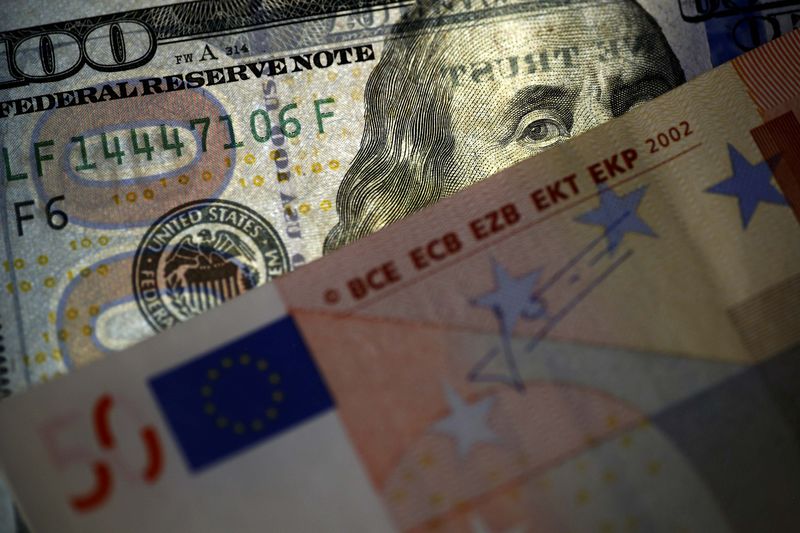* EUR bullish after posting biggest 1-day gain vs USD since 2009
* ECB disappoints euro bears with bare-minimum easing package
* All eyes on U.S. payrolls, upbeat report could aid dollar (Updates details, adds quotes)
By Ian Chua and Shinichi Saoshiro
SYDNEY/TOKYO, Dec 4 (Reuters) - The euro stood head and shoulders above its rivals on Friday after boasting its biggest one-day surge in nearly seven years, as the latest round of policy easing by the European Central Bank fell well short of market expectations.
The euro last traded at $1.0910 EUR= after shooting up 3.1 percent overnight, its biggest one-day gain since March 2009. It had been as low as $1.0523, a level not seen since April.
The battered greenback looked to the closely-watched U.S. non-farm payrolls due later in the day for relief. While November payrolls might not be as impressive as the 271,000 new jobs created in October, economists still expect a solid addition of 200,000 jobs for last month.
Bruised dollar bulls may draw comfort from the fact that a December U.S. rate hike seemed almost baked in, barring any shocks in the payrolls report.
"The overall picture has not changed. The ECB decision did prompt covering of euro shorts, but the market was thin going into the year-end, which exaggerated movements," said Bart Wakabayashi, head of forex at State Street in Tokyo.
"It is still easier to support the dollar as the story is no longer just about the Fed hiking rates, but how frequently they could continue to tighten policy."
Federal Reserve Chair Janet Yellen, speaking before Congress' Joint Economic Committee on Thursday, said the United States may be "close to the point at which we should be raising" rates.
Yellen also said the U.S. economy needs to add fewer than 100,000 jobs a month to cover new entrants to the workforce, perhaps setting an implicit floor for jobs growth that policymakers want to see.
BATTERED DOLLAR
The euro's explosive rally on Thursday knocked the dollar index .DXY back to a one-month low of 97.591, from a 12-1/2-year peak of 100.510 scaled midweek on the coattails of hawkish comments from Yellen. The index shed 2.1 percent on Thursday, its worst performance since March 2009. It last stood at 98.041.
Bears scrambled to unwind short euro positions on a bare-minimum easing package in which the ECB cut its deposit rate by a mere 10 basis points and extended its asset buys by six months.
Following recent dovish comments from ECB President Mario Draghi, markets had expected more aggressive measures including a larger cut in the deposit rate and perhaps even an increase in the monthly pace of asset purchases.
Against the yen, the common currency rallied 2.5 percent overnight before pulling back slightly to 133.80 EURJPY=R . It also posted handsome gains on sterling EURGBP=R and commodity currencies such as the Australian dollar.
The magnitude of the move took some analysts by surprise.
"The extent of the move seems disproportionate both to the degree of disappointment delivered by the ECB and to positioning heading into the meeting," analysts at BNP Paribas (PA:BNPP) wrote in a note to clients.
"We expect to see good interest to sell euro into this latest move higher as we head into year-end, particularly if the Fed delivers a rate hike in December as we expect. Our $1.06 year-end target, which seemed perhaps too conservative just 24 hours ago, continues to look appropriate to us."
Heavy selling in the dollar against the euro saw the greenback lose ground against many of its peers as well.
Versus the yen, it slipped towards the bottom of a 122.23-123.77 range and last stood at 122.63 yen JPY= .
The Australian dollar climbed towards its October peak of $0.7382, while the New Zealand currency briefly popped above 67 U.S. cents NZD=D4 for the first time in a month. (Editing by James Dalgleish & Shri Navaratnam)
